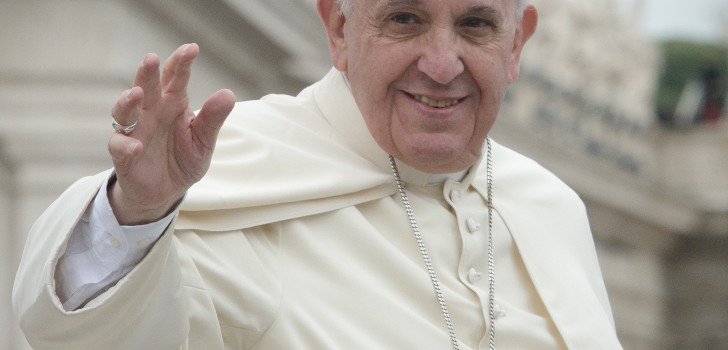The United States is anxiously awaiting the arrival of Pope Francis, which happens later today at 4:00 p.m. In the meantime, people are brushing up on the Pope’s doctrines and beliefs. One topic that the Pope will address with members of Congress and President Obama is his position on nuclear weapons, which is as follows: it simply is immoral to possess nuclear weapons for any reason.
While Obama personally believes in this position, it is likely that the Pope’s feelings will not sit all that well with the realities faced and believed in by lawmakers.
The Catholic Church has long maintained the position that nuclear weapons must be eliminated from Earth. Pope John XXIII stated in 1963 that, “Nuclear weapons must be banned. A general agreement must be reached on a suitable disarmament program.” As a result, the United States Conference of Catholic Bishops and the church have worked together to support arms control and disarmament agreements.
And up until now, while the church has spoken out vehemently against the possession of nuclear weapons, it has recognized an exception: states may need to possess these weapons of mass destruction in order to deter other nations from launching nuclear attacks and thus ending mankind.
The Pope likely will take a stronger approach than expressed by Pope John XXII in the 60s. He will declare that any possession of nuclear weapons for any reason, even as a deterrent to world destruction, is immoral.
In December, the Pope wrote that, “Nuclear deterrence and the threat of mutual assured destruction cannot be the basis for an ethics of fraternity and peaceful coexistence among peoples and states.” Last week, the church took a more direct stance. The Pope’s spokesperson reiterated the Pope’s position that that the rationales for possessing and building nuclear arsenals are riddled with problems.
The gist of the church’s position is that in today’s world, nuclear deterrence cannot be the basis for peaceful coexistence among nations. Moreover, the risks associated with these weapons could cause extreme humanitarian consequences. Instead of acting as a step towards nuclear disarmament, nuclear deterrence itself has become a deterrent towards reaching the goal of a world without nuclear weapons.
Specifically, a recent church policy paper stated that, “in the past the church has . . . expressed a provisional acceptance of [nuclear weapons] possession for reasons of deterrence, under the condition that this be ‘a step on the way toward progressive disarmament.’ This condition has not been fulfilled – far from it.”
As such, the Pope’s message will likely trouble members of Congress and the administration. A massive buildup of United States nuclear weapons is underway and Defense Secretary Ash Carter stated last week that, “nuclear deterrent is a must-have . . . it’s the foundation, the bedrock, it needs to remain healthy and we all know we need to make additional investments, both in the Navy and, importantly, in the Air Force.”
The Pope simply does not support this position and recently asserted that, “spending on nuclear weapons squanders the wealth of nations.” It appears that the Vatican seems to have a legitimate, modern analysis of the problems facing the world, pointing out that the possession and buildup of nuclear weapons does not address the immediate, real, major issues and threats facing nations and humanity as a whole.
Despite the actions taken by the United States related to nuclear weapons, it is clear that the Pope will express his sadness and disappointment, but it is also clear that he will express forgiveness and preach his belief that it is never too late to change and be saved.
Stay Connected